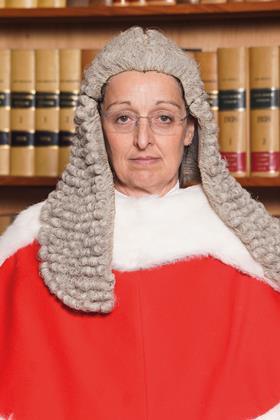Greater transparency in the Family Court – and the ability of journalists to approach parties for comment – is drawing attention to the quality of expert witnesses. In conjunction with the Bureau of Investigative Journalism, Hannah Summers, the first full-time family courts reporter, analyses a case that raises questions about unregulated specialists
I first reported on the highly divisive issue of ‘parental alienation’ in 2022. It refers to a scenario where a child rejects one parent for no reason other than being manipulated or influenced by the other. I have heard directly from parents – mothers in particular – who have lost custody of children following evidence from court-appointed experts that they have ‘alienated’ them from their other parent.

Inevitably, there will sadly be times when children are weaponised by one or both parents in highly acrimonious cases. But the way in which allegations of parental alienation are frequently being raised in family courts has the appearance of a litigation tactic. This has been causing mounting concern, among both lawyers and psychologists.
Lawyers have told me that claims of parental alienation, also called ‘alienating behaviours’, are too often being used as a counter-allegation to domestic abuse.
In August 2023, the Family Justice Council issued draft guidelines for consultation on the handling of allegations of alienating behaviour. The consultation closed on 16 October, but the FJC has yet to respond.
Now the Bureau of Investigative Journalism is able to report on a case, published in partnership with the Gazette, after making an application for a transparency order to the family court in Bristol. The case, before Mrs Justice Judd, is significant because both sides were represented, and the evidence and submitted report of the psychologist, Melanie Gill, were closely tested in cross-examination. Judgment was handed down on 20 December 2023, and the court’s findings are important.

‘Bolstering’ harassment
The mother in this case has claimed her abusive ex-partner used the report of a psychologist who is not regulated by the Health and Care Professions Council (HCPC) to bolster his harassment of her. (Judd found the father had read Gill’s report in a ‘partial’ way (see below).)
Her ‘hostile’ ex, who initiated proceedings regarding contact with their two children of secondary school age, had accused her of ‘parental alienation’.
In her findings, Judd rejected that proposition.
The mother, who previously tried to have the psychologist’s evidence removed from her case, said: ‘[The father] had already accused me of alienation but the allegations ramped up after Gill’s report – and he would send me emails using her terminology.’
In a position statement filed on behalf of the mother for the fact-finding/final hearing, her barrister, 4PB’s Justin Ageros, described how the father raised allegations of alienation in ‘strident and aggressive terms’ and used the claim as a reason to withhold child maintenance payments.
Judd went on to find the father’s behaviour in sending the accusatory messages to be ‘coercive’ and ‘punitive in tone’. Judd also found the withholding of maintenance to be controlling.
In one email the father wrote: ‘Any alleged arrears have been addressed from my end as a proximate consequence of your deliberate parental alienation.’ He added: ‘Since a renowned expert has explained that you weaponise my contributions and continue to alienate the children, I am awaiting advice from my legal counsel.’
The mother told me: ‘From my research I knew that other mothers accused of parental alienation had had children removed from their care and I was terrified of losing mine – and about the environment they could find themselves in.’
In her published judgment, Judd made clear she did not adopt Gill’s recommendations to the court, noting her assessment had a narrow focus instead of being based on the ‘evidence as a whole’.
Last year, Gill was at the centre of a high-profile appeal overseen by president of the Family Division Sir Andrew McFarlane, which considered the wider public interest matter of the court’s use of unregulated psychologists.
In the landmark case known as Re C, the president determined that it was not for the court to prohibit the instruction of unregulated experts. He noted that the generic label ‘psychologist’ was not protected and could be used by any individual, irrespective of whether they were registered with the ‘relevant regulatory body’, the HCPC.
Because of McFarlane’s ruling in that case, the mother in the Bristol case withdrew her application to have Gill’s evidence removed. But she continued to challenge Gill’s qualifications, methodology and recommendations.
Background to the case
The parents have been embroiled in the family court for many years. The father, who works abroad but returns to the UK for contact with his children, started proceedings in 2016 with an application for a child arrangements order. The mother made allegations of domestic abuse and issued an application for a non-molestation order.
At a fact-finding hearing in 2017, Judge Rutherford found the father made vile comments about the mother calling her a ‘monster’, an ‘uberbitch’ and ‘crazy’, and said unpleasant things about her in front of the children.
In a judgment, he wrote:
‘…the mother’s perception of the father’s conduct is that it has been, and is, harassing, controlling and coercive and indeed frightening and that, whatever his intentions – and I am not prepared to find that he has embarked on a deliberate campaign – it has undermined the mother to the detriment of her care for the children.’
He rejected the father’s claim the mother had deliberately prevented contact with his children and issued a non-molestation order which expired a year later.
The judge said the father should have supervised contact, moving to unsupervised contact, but the arrangement broke down and the father didn’t see his children for nearly three years.
He issued a new application to the court in 2020 and supervised contact resumed. Gill was instructed six months later.
The father claimed the mother had been obstructive of the children spending time with him and alleged she had alienated the children by sharing her negative views of him, causing them emotional harm.
The mother submitted that the father continued to be emotionally abusive, intimidating and threatening towards her and that his behaviour had caused the children, who wanted supervision of the contact to continue, to feel anxious and upset.
She asked the court to reject Gill’s analysis and said the father should undertake work to address his behaviour before having unsupervised contact with the children.
Post-traumatic stress
Gill was put forward by the National Youth Advocacy Service (NYAS) – which provided a guardian to represent the children in the proceedings. She went on to interview the parents and filmed them remotely interacting with the children. Her report, which Judd later described as ‘couched in highly technical language and not at all easy for a lay person to follow’ was filed in February 2022.
Gill claimed the mother was projecting traumatic fear from her childhood on to her children. She also said one of the children had become ‘alienated’ from the father due to the mother’s unconscious behaviour as well as their negative experiences of their father.
Gill concluded there could be negative effects on the children if their relationship with their father is not repaired.
On behalf of the mother, in her position statement, Ageros said one of the ‘fundamental defects’ of Gill’s approach was a complete failure to reflect Rutherford J’s findings in 2017.
At a hearing in December 2023 he said the psychologist commented on the fact there were findings but made ‘no reference’ to how those findings might have impacted on the mother or children.
Gill responded: ‘I do… I talk about how in the past [the mother] was abused.’
Ageros also challenged how Gill came to diagnose post-traumatic stress. He said: ‘You indicate that it is from trauma from my client’s childhood – you don’t relate it to the court’s findings that she had suffered domestic abuse at the hands of the father.’
But Gill told the court: ‘Yes I do, I specifically say how [the father] treated her exacerbated existing trauma.’
‘Terrifying’
Ageros claimed Gill was not qualified to answer the questions required of her by the court’s letter of instruction. These included assessing whether the children have a history or presentation of a mental illness or psychiatric disorder.
The psychologist said she was trained to recognise ‘diagnostic categories’ but added: ‘I would not diagnose a condition… Anything which looked like it could fulfil the diagnostic category then I would have asked a colleague, a psychiatrist, to look over my data,’ Gill said.
Asked why she failed to explore the children’s wishes and feelings, she argued that, at their age, the children are not ‘neurologically capable of giving an answer… They don’t have the understanding and they certainly don’t have the neurological architecture… to judge what exactly is going on.’
She added: ‘That is the job of the guardian, it’s not my job. However, what these assessments do is give you the children’s wishes and feelings in a more oblique way, but I don’t have to ask them directly.’
Ageros asked if she would consider her ‘frankly astonishing view’ on children’s capabilities as being mainstream. Gill responded: ‘It absolutely is for people trained in these cases… When you ask for wishes and feelings you present them [the children] with a very difficult choice and it stresses them out and affects their brain.’
Ageros described Gill’s report as a ‘manifesto’ supporting attachment science and denigrating mainstream clinical psychology. He said one of his client’s key concerns was the diagnosis of post-traumatic stress on the basis of discussions about her childhood.
Gill defended her methodology, arguing that post-traumatic stress is not the same as post-traumatic stress disorder – the latter being a diagnosis she is not qualified to make.
She said her approach involved an interview that could get to the truth of what happened in the past. ‘It shows the damage that has been done to people and whatever has happened to them in their childhood and then in later life,’ she said.
Ageros told her: ‘I would suggest that is an extraordinary assertion for you to make, that you are not qualified to offer such a diagnosis and it is frankly terrifying that on the basis of that you go on to suggest my client should have a specific form of therapy.’
During her evidence Gill insisted she was not denigrating mainstream psychology but instead said that her approach was the ‘only model validated for use in court with children’.
‘Not a condition which can be diagnosed’
Earlier the court heard how in response to the Re C judgment, Gill wrote on her LinkedIn profile that she had been ‘exonerated against [sic] all the accusations against me’ and that ‘PA’ [parental alienation] had been ‘vindicated’.
Ageros asked how this was so, since the president of the Family Division had endorsed the view that ‘parental alienation’ is not a condition which can be diagnosed by a psychologist but a series of behaviours to be determined by the court.
He said it was implicit from Gill’s answers that she did not agree with the president and did not believe the court could identify PA without the use of ‘an expert such as yourself’.
Gill told the court: ‘I do agree with the president that it should be the court that is deciding but it is up to us experts to help provide the evidence and use the right assessments to bring out the things that constitute alienation.’
In a position statement for the final hearing on behalf of the father, 1GC barrister Emily James said from March 2018 until January 2021 the father did not travel to the UK as the mother would not permit any contact.
James wrote: ‘She did not make the children available to spend time with him in accordance with HHJ Rutherford’s order and her position appears to have become increasingly entrenched throughout proceedings.’
James noted that Gill was agreed as a suitable expert between the parties, albeit that the mother was acting in person at the time. She said the psychologist had been practising as an expert witness for many years and her instruction based on her expertise had been endorsed in ‘many cases by many courts’.
With respect to Gill’s report she wrote: ‘Ms Gill is clear that the mother is in large part responsible for the children’s… reluctance to spend time with the father as she is consciously or unconsciously communicating her own negative views of him to [them].’
James said of the father: ‘He notes that Melanie Gill and NYAS find no obviously proportionate reason for the children to be so entrenched in their views against him and both professionals express concerns about the language and behaviours of the children which align so closely to the mother’s.’
At the hearing, Gill, who describes herself as a specialist psychologist, said she has been instructed in family court proceedings ‘probably 150 to 200 times – I have been challenged and questioned on my qualifications in every single private law case I have ever undertaken and I have never been criticised.’
Judgment
Mrs Justice Judd did not make any of the findings sought by the father against the mother. Giving judgment, she wrote: ‘I reject the proposition that she has obstructed contact, failed to promote the father to the children or alienated them in any way.’
Instead, the judge found it was the father’s behaviour, causing the children to feel upset, confused and pressured that led to the problems in his relationship with them. When he did not pressure the children, contact goes well, she said, adding: ‘He is affectionate and fun and the children love him’.
With respect to his treatment of the mother, the judge said: ‘My finding is that he has sent her repeated hostile and accusatory emails and has been hostile when she tried to rearrange the times of calls.
‘He has accused her of alienating the children from him. I would describe this as intimidating and bullying behaviour. It is also clear from the messages that the father has withheld child maintenance from the mother because of his frustration about contact.’
Judd said the father had taken Gill’s report as firm support for his belief that the mother was alienating the children from him and that he had read it ‘in a partial way’.
The judge referred to an email – which she noted is one of many similar messages – in which the father said the mother has perpetuated an ‘unbearable saga’ with ‘crystal clear parental alienation – a conclusion reached by an independent expert’.
Judd ordered a regime of ‘light touch’ supervised contact for the father and that the parents should attend a Parenting Apart Programme, with final arrangements for the children to be decided at a later date.
So much fear
'I had no idea that someone could be put forward to the court as an expert without belonging to a regulatory body'
Mother in family court case
The mother said Judd’s judgment brought her enormous relief. ‘I had so much fear about possible findings of parental alienation,’ she told the Bureau of Investigative Journalism. ‘Gill said the alienation was subconscious but the father took her report and really ramped things up.’
She said being a litigant in person [without a lawyer] at the time Gill was recommended to the court and during her assessment had increased her vulnerability.
‘I had no idea that someone could be put forward to the court as an expert without belonging to a regulatory body.’

During her evidence Gill told the court that the father was wrong in his interpretation of her report.
Gill was approached for comment. Her solicitor responded on her behalf: ‘Our client is not responsible for the parties’ conduct in litigation or how they seek to present her evidence and, in any event, the judge in the case was alive to this issue and commented on it in her judgment [see above].
‘Our client’s firm view is that, in general, children benefit from some degree of contact with both parents. She has no agenda to promote the removal of children from their mothers to live with unfit fathers and this has not been the outcome in any of the cases in which she has given evidence.’
Many of the submissions to the Family Justice Council’s consultation on draft guidelines on alienating behaviour were highly critical of the concept.
When the FJC does respond to the consultation, the adequacy of that response will be measured against the conduct and outcome of cases such as this, in Bristol’s Family Court. A particular worry remains that so many parties in the Family Court are unrepresented, and that this affects the level of scrutiny expert witnesses face in such high-stakes cases.






























